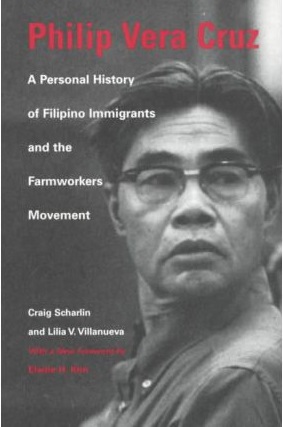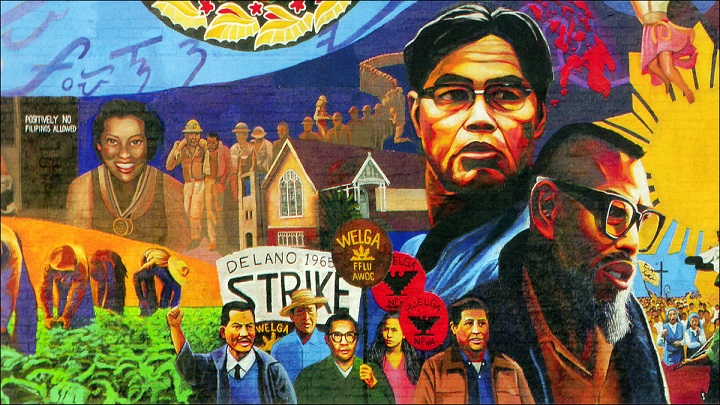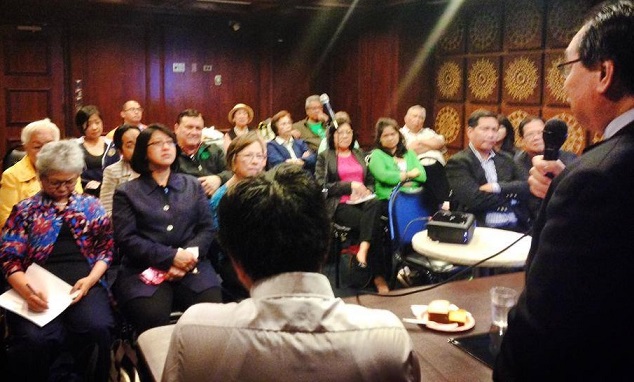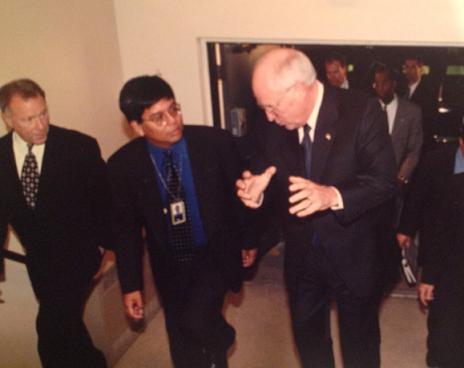Philip Vera Cruz, the Manong Generation and quest for the American Dream

By Craig Scharlin & Lilia V. Villanueva
3rd Edition, June 2000
By Allen Gaborro
Probably only a small fraction of Filipino Americans know who Philip Vera Cruz was. Once upon a time, during the late 1950s to the 1970s, Vera Cruz was a pivotal and pathfinding labor representative of the California farmworkers as well as a committed, empathic, and kindred soul to their plight.
Craig Scharlin and Lilia V. Villanueva brought Philip Vera Cruz out of relative obscurity with their co-ventured work, “Philip Vera Cruz: A Personal History of Filipino Immigrants and the Farmworkers Movement.” Originally published in 1992, the book’s oral remembrances of Vera Cruz’s experiences are now in a third edition.
A theme that is held up to a mirror in the memoir is the prevalent story of the American Dream. Waves of Filipino immigrants have subjected themselves to the exacting challenges that come with the effort of actualizing that dream. As part of the celebrated Manong generation, Vera Cruz pursued that utopian dream in 1926 when he left his home in the Philippines for a new life on the other side of the Pacific.
In the United States, Vera Cruz would gain miscellaneous employment ranging from cannery work in Alaska to being a busboy in Washington state. A transformational point in his life was in the 1940s when he relocated to California’s San Joaquin Valley, widely described as the “food basket of the world.” Vera Cruz settled in the small town of Delano which would become a hotbed of agricultural labor union activity.
It was in Delano that Vera Cruz became an influential member of the National Farm Labor Union. In time, he would become a cardinal figure in the United Farm Workers (UFW) union which in turn would be headed by Mexican-American activists Cesar Chavez and Dolores Huerta.
It was against a background of longstanding racial discrimination, poor working conditions, and equally poor wages, that Vera Cruz was indispensably instrumental—along with fellow Filipino American labor leader Larry Itliong—in organizing the Delano grape strike in September 1965. The strike was intended to end the exploitation of the grape workers by the landowners by demanding better pay and the establishment of labor union contracts.
The Delano agricultural labor strike, unprecedented in size and demographics, was a historic achievement for the farmworkers but it may not have succeeded over the long run had Mexican laborers not joined in. Fortunately, they saw the wisdom in doing so and as a result the merger took place between the Agricultural Workers Organizing Committee (AWOC) which was made up primarily of Filipino laborers, and the Mexican American-dominated National Farmworkers Association (NFWA). Together they created the United Farm Workers.
Even with the crucial partnership of the NFWA however, Vera Cruz makes sure the reader understands that it
“was the Filipinos, not the Mexicans, who started this phase of the farmworkers movement when they alone sat down in the Delano grape fields back in 1965 and started what became known as the ‘farmworkers movement’ that eventually developed into the UFW.”

The UFW’s renowned headman, Cesar Chavez, was an all but exalted presence among the farmworkers. It was along those lines that Vera Cruz harbored reservations about Chavez’s stewardship. Vera Cruz remembers that with “Cesar Chavez it was almost taboo among supporters to hear of any criticism of Cesar or the union. It was as if it were sacrilegious to look at the union or Cesar with anything but a supportive eye.”
His disagreements with Chavez would predispose Vera Cruz’s departure in 1977 from the UFW. But he remained dedicated to the spirit and cause of his brothers and sisters in the movement.
Vera Cruz would stay devoted to what he called “my continuous struggle” after stepping down from the UFW. He remained active in championing the rights of agricultural laborers as well as that of Filipino Americans competing in the labor force. Vera Cruz passed away in 1994 at the grand old age of 89.
In their book, Craig Scharlin and Lilia V. Villanueva rise to the occasion in rescuing Philip Vera Cruz’s name from the vast spaces of historical nescience. Contemplative and absorbing, his life story will ensure that the memory of Philip Vera Cruz will be preserved for all Filipinos.
Support independent bookstores! Bookshop is an online bookstore with a mission to financially support local, independent bookstores. Below is a link to TheFilam.net Bookshop page.
© The FilAm 2022











